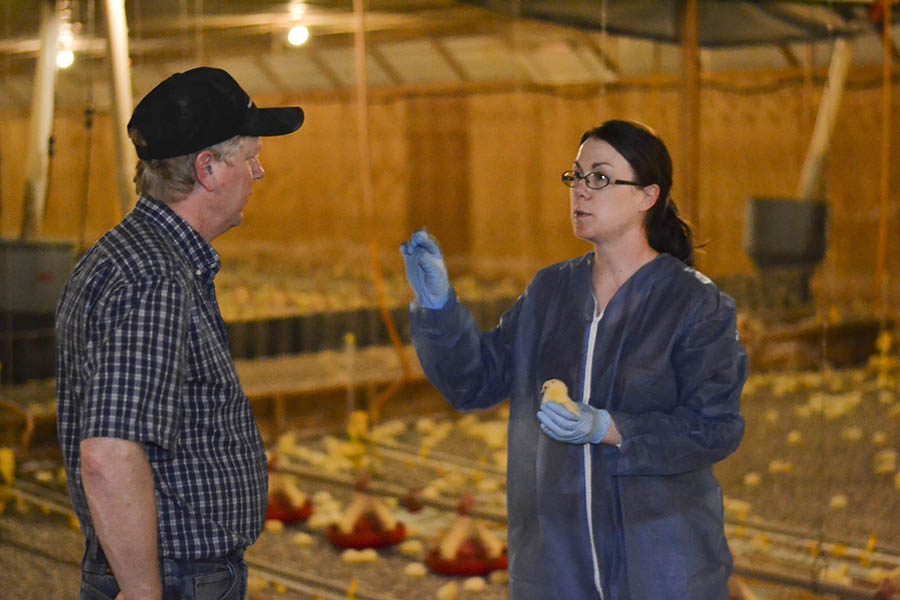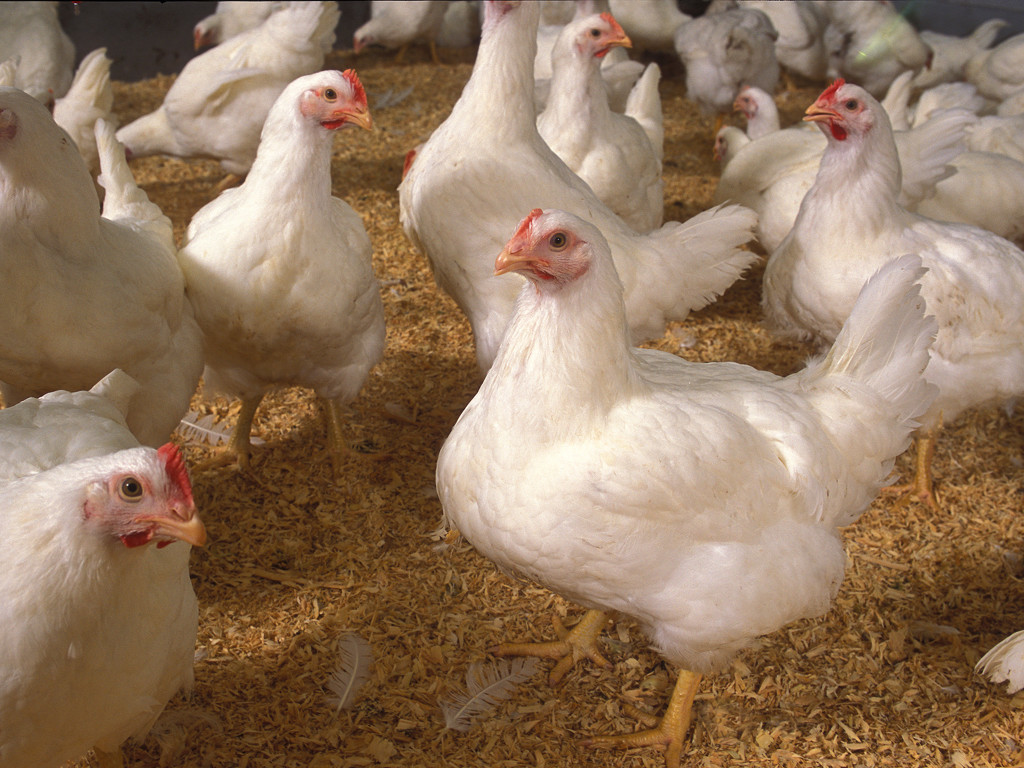Animal Welfare Training: Do chicken farmers receive animal welfare training?

Broiler chickens (chickens raised for meat) are always raised by farmers trained in animal welfare.
Farmers and employees are trained in handling and caring for chickens in order to provide a safe, healthy and low-stress environment. If caught mistreating the chickens, they are subject to immediate disciplinary action, including termination and prosecution.
To help provide more detail on animal welfare training for broiler farmers and farm personnel, Dr. Yvonne Thaxton, former Director of the Center for Food Animal Wellbeing at the University of Arkansas, shares her professional expertise and experience, and answers the most frequently asked questions about broiler chicken welfare training.
How are farmers trained to care for chickens properly? Who trains them?
In the modern poultry industry, farmers are commonly trained in animal welfare by other company personnel who have been specifically trained and educated to become trainers. These trainers may have received their training from a variety of sources such as university, trade association or independent workshops. And many of them have been trained and certified by the Professional Animal Auditor Certification Organization (PAACO).
- Farmers are trained on the connection between animal health (physical characteristics) and animal well-being (behavioral characteristics). For example: the well-being of a bird (behavior) may reflect that the bird has a health problem (physical problem), or vice versa.
- Farmers are trained on how to report any concerns or observations of abusive behavior or bird mistreatment. They are also trained on the circumstances under which they should report a disease or other health situation to the appropriate company employee (veterinarian, service technician, live production manager, etc.).
- Farmers are trained on biosecurity procedures appropriate for their farm.
- Farmers are trained on normal bird behavior and activity, and the goals for maintaining an environment for good broiler health.
- Farmers must inspect flocks twice per day, and must do so in a manner that does not unnecessarily disturb birds. Feeding and drinking systems are checked for proper operation on a daily basis, and feed and water intake is monitored.
- Farmers are trained on proper chicken handling (by their legs or by their whole body), and examples of what is not allowed for handling and would be considered egregious behavior.
- Farmers are trained how to identify birds that are ill, injured, or anatomically defective and must be humanely euthanized. They are trained on why euthanasia is used, how to perform it, what is considered a “normal reaction” during euthanasia, and how to verify euthanasia was effective.
How often do chicken farmers receive animal welfare training?

Poultry farmers are trained before they receive the first birds and again each year. If a problem is noted during a routine check of the farm, a more frequent welfare training may be required.
Are there varying standards in animal welfare or do all farms follow the same welfare training guidelines?
The National Chicken Council Broiler Chicken Welfare Guidelines are used as the baseline standard by everyone in the U.S. industry. These standards were prepared by university and industry experts. A panel of university experts in poultry welfare reviews these standards every 3 years. This review insures that new scientific data is considered and when appropriate incorporated into the standards to maintain the goal of continuous improvement.
How do you ensure farmers are following proper welfare protocols?
Specially trained company personnel visit the farms regularly, often once a week, to monitor the birds for signs of illness or mishandling. In addition to these visits, companies frequently send welfare specific auditors to monitor the farms and score them based on that farm’s particular welfare standards.
The company’s customers, who buy the poultry meat, such as a grocery store or restaurant, typically hire PAACO certified outside auditors, known as Third Party Auditors, to perform welfare audits to ensure that the standards of the customer are being met.
What are the consequences of mistreating or abusing a chicken(s)?
If mistreating or abusing chickens is determined, action is taken. If the event is determined to be minor, re-education is typically required which may be accompanied by an increased number of farm inspections to insure the problem has been resolved. However, if the problem is ongoing neglect, the farmer could be dismissed and no longer eligible to receive birds. And in the cases of intentional abuse, the farmer is dismissed and the situation often reported to the local authorities for criminal investigation and prosecution.

Dr. Yvonne Thaxton is the former Director of the Center for Food Animal Wellbeing at the University of Arkansas.
Before entering academia in 1999, Dr. Thaxton spent 23 years at Marshall Durbin Companies, where she was responsible for the science and quality assurance department. In that role, she oversaw all aspects of operations and regulatory affairs.
Her influence and expertise has been felt industry-wide, having been appointed three times to the USDA Advisory Committee on Meat & Poultry Inspection, as well as several international committees fielding a range of food science and food safety issues. Dr. Thaxton holds a B.S. in bacteriology and a M.S. in biological sciences from Mississippi University for Women; and a Ph.D. in poultry pathology from Auburn University.
LOOKING FOR MORE INFORMATION?
Learn more about broiler chicken welfare in this FAQ.
To see what daily life is like for a conventionally raised broiler chicken, visit our “Day in the Life” section.
To download a PDF of this FAQ on broiler chicken welfare, click here.
